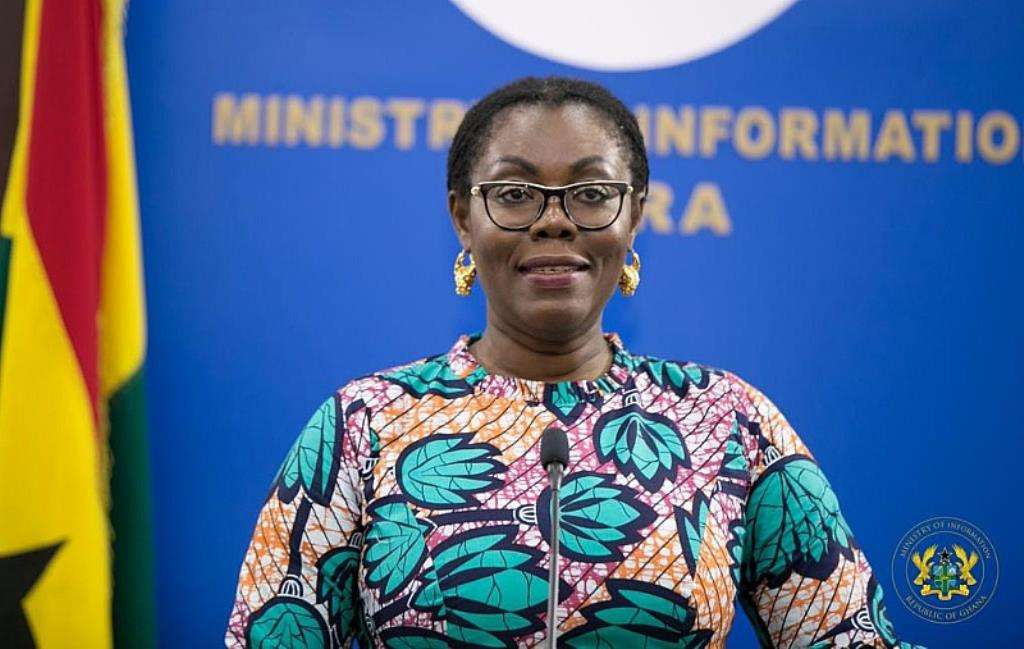The Ministry of Communications and Digitalisation (MoCD) is in the process of developing a comprehensive policy document to regulate the use of Artificial Intelligence (AI) in the country.
A draft is currently ready and waiting to be tabled before Cabinet for consideration and suggestions.
When completed, the policy is expected to ensure better conditions for the development and use of this innovative technology for the benefit of the citizens.
AI technology could help create many benefits such as improved healthcare, safe and clean transport, efficient manufacturing, and cheaper and more sustainable energy, when properly used.
The Minister of Communications and Digitalisation, Ursula Owusu-Ekuful, made this known at the Annual New Year School and Conference in Accra last Wednesday.
She stated that the draft policy was developed with a lot of consultation from stakeholders.
“I can happily announce that we have worked on a draft AI policy and ethical guidelines for the country and it is now going to Cabinet for consideration.
“It was developed with a lot of stakeholder consultations and we can clearly state that the inputs of all stakeholders were considered before the document was put together and so, we are optimistic that many of the concerns have been addressed in the draft,” the minister added.
AI not the problem
Mrs Owusu-Ekuful explained that AI could be linked to any technology with the tendency to be manipulated for good or bad.
“And so, AI is not the problem, rather the use of it and that is the reason why we are developing a policy to support and regulate the deployment of the technology.
“AI has been around for a while now; an aircraft being able to fly on autopilot is made possible by an AI technology,” she said.
She noted the technology had been mainstreamed for a while now but it was the predictive AI such as ChatGPT and the likes in various industries that were generating some concerns among the users.
That, the minister said, was because the technology was currently being used in a manner that might seem antisocial or counterproductive.
“But we need to build the regulatory rules around the technology to ensure that everybody conforms; it is a concern that is resonating across the world and so, we are looking at AI for good,” she said, in response to a question on the role and risk of AI in promoting creativity.
The conference
The question was asked by the Founding Dean of the School of Continuing & Distance Education, University of Ghana (UG), Prof. Yaw Oheneba Sakyi, at a session dubbed “Time with the Minister”.
The session was part of the 75th edition of the Annual New Year School and Conference which was opened and closed between January 9 and 11, 2024.
On the theme: “Nurturing resilience: Adopting technology and embracing humanism for sustainable development,” the conference is spearheaded by the School of Continuing and Distance Education of the College of Education at the University of Ghana.
Transformation
Also speaking as a panel at the session, the Minister of Education, Dr Yaw Osei Adutwum, stated that AI technology had been equipped with the required potential to help improve education and bring transformation in teaching and learning.
“AI has the potential to customise teaching and learning and our students can use the technology to undertake pre-assessment on a case study and they can know deficiencies that need to be rectified.
“It would not replace the teacher, but it would enable teachers to be more strategic and targeted in working with students in knowing their deficiencies and how to resolve them,” he said.
However, the Education Minister noted that the technology also had a negative side which was very scary to various sectors of the economy.
He added that stakeholders must work together to deal with the negative effects associated with AI and focus more on the positives which were mostly enormous.




































